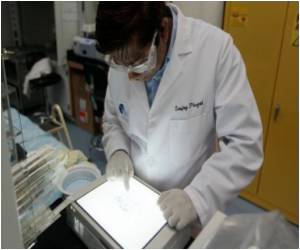
The authors reached their conclusions by calculating the overall cost of six induction treatments for cryptococcal meningitis in HIV-infected patients using 2012 healthcare costs in Uganda for drugs, supplies, and hospital care, and average laboratory costs for monitoring treatment from three African countries. Then they estimated the survival, cost, and cost per benefit associated with each treatment.
Currently, WHO recommends a 14-day regimen of injected amphotericin (a very toxic drug) and oral flucytosine or fluconazole for induction therapy of cryptococcal meningitis, but this regimen is impractical in many low income countries because of the cost of the drugs and hospital admission; so high-dose fluconazole alone is the usual treatment, even though this regimen is much less effective resulting in more deaths.
The authors say: "Short-course (7-day) amphotericin induction therapy coupled with high-dose fluconazole is very cost effective per World Health Organization criteria and may be a worthy investment for policy-makers seeking cost effective clinical outcomes."
They add: "Amphotericin should be moved from the ''complementary list'' to the ''core list'' in the WHO Model List of Essential Medications."
In an accompanying Perspective article, Andrew Farlow from the University of Oxford (uninvolved in the study) says that two results stand out: "First, the least cost-effective regimen is high-dose fluconazole monotherapy, which has been associated with a nearly 2-fold higher 10- week mortality rate and about 30% greater absolute mortality than the short course (5 days) amphotericin-based regimen. Second, long-course (14 days) amphotericin-based regimens, as recommended by the World Health Organization are not only more costly but appear to be no more effective than short course amphotericin-based regimens."
Advertisement
Source-Eurekalert











